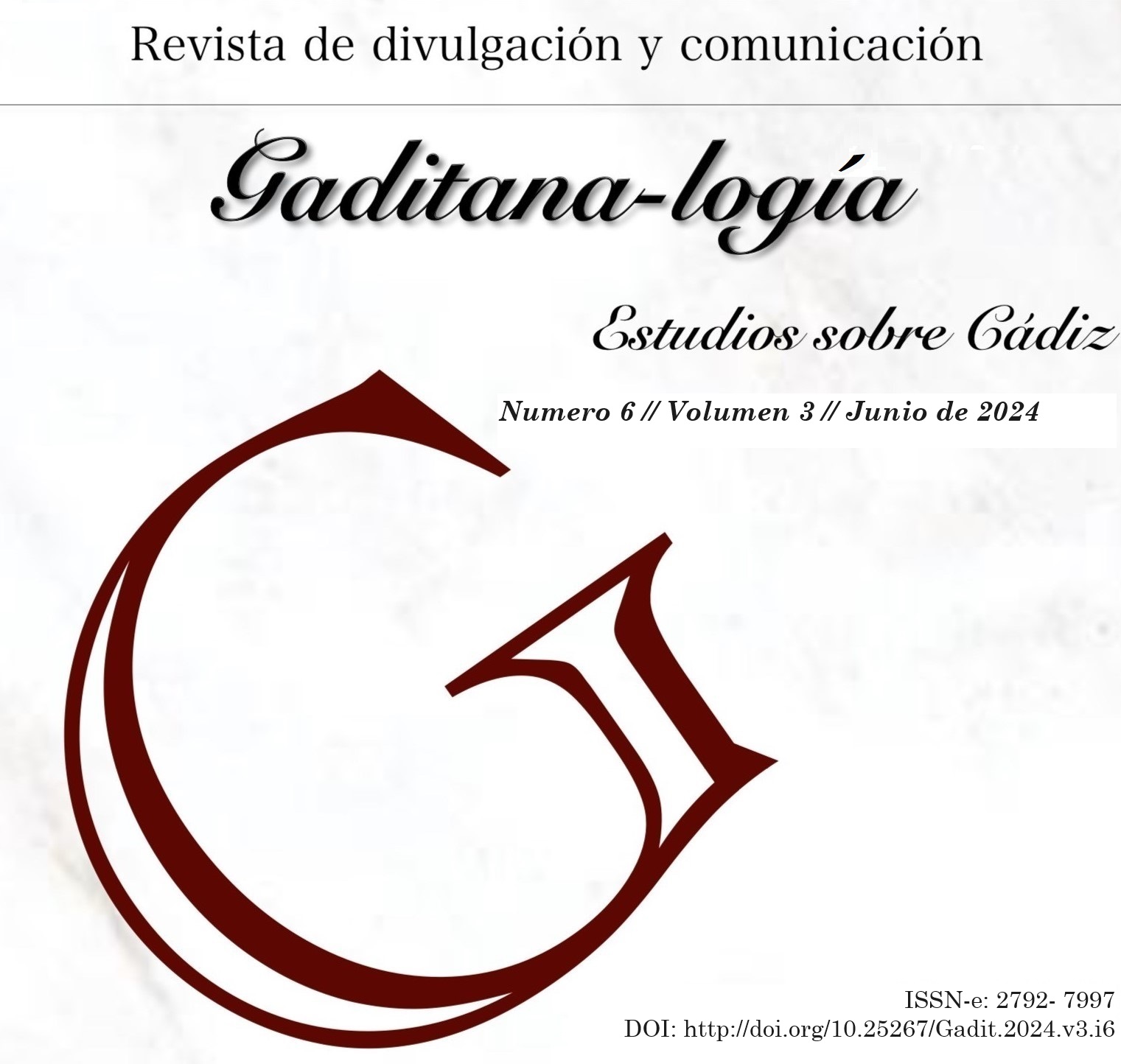La Caleta. In a self-narrative key
Abstract
Speaking in the first person is one of the properties and risks of self-narrative. Clearing the yearnings, passions or affinities are revealed in this journey along one of the most emblematic beaches of Cádiz. The referent will be between the emotional and some guidelines given by the carnival, which will guide the semblance that, instead of being segmented by closed epigraphs, is presented in porous sections based on nuclei of meanings. The conclusions are unfinished so that the reader can complete it according to his/her own memories and visions, together with ours. La Caleta beach has many possibilities of approach, in this case, the option is the self-narrative as a gesture of honesty and a return to all the good things that Cádiz has to offer. In this way, the trilogy that began with Carnival and continued with Holy Week comes to an end.
Keywords
Downloads
How to Cite
License
Copyright (c) 2024 Gaditana-logía

This work is licensed under a Creative Commons Attribution-NonCommercial-NoDerivatives 4.0 International License.
References
Ayala, R. (2017). Retorno a lo esencial. Fenomenología hermenéutica aplicada desde el enfoque de van Manen. Caligrama.
BERA (British Educational Research Association) (2019). Ethical-guidelines-for-educational-research. https://www.bera.ac.uk/publication/ethical-guidelines-for-educational-research-2018
Cambil, M. y Rojas, M. (2017). Enseñanza y aprendizaje del patrimonio cultural en el nuevo contexto digital. En María Cambil y Antonio Tudela (Coords.). Educación y patrimonio cultural. Fundamentos, contextos y estrategias (pp. 81-99). Pirámide.1
De Mattos, B. (2011). La voz del alumnado. Una investigación narrativa acerca de lo que siente, dice y hace el alumnado de magisterio de educación física en su formación inicial. Tesis doctoral. Universidad de Almería.
Demetrio, D. (2003): Ricordare a scuola. Fare memoria e didattica autobiografica. Laterza.
Formenti, L. (2009). Una metodología autonarrativa para trabajo social y educativo. Cuestiones Pedagógicas, 19, 267-284. https://institucional.us.es/revistas/cuestiones/19/15Formenti.pdf
Gullón, A.; Padrón, L. y Pérez-Reverte, C. (2021). Entre la Tierra y el Mar: Un estudio diacrónico de uso. Aconcagua.
Moriña, A. (2017). Investigar con historias de vida. Metodología biográfico–narrativa. Narcea.
Ricoeur, Paul (2006). La vida: un relato en busca de narrador. Ágora. Papeles de filosofía, 25(2), 9-22. http://hdl.handle.net/10347/1316
Roth, W. y Unger, H. (2018). Current Perspectives on Research Ethics in Qualitative Research. Forum: Qualitative Social Research, 19(3). http://dx.doi.org/10.17169/fqs-19.3.3155.







